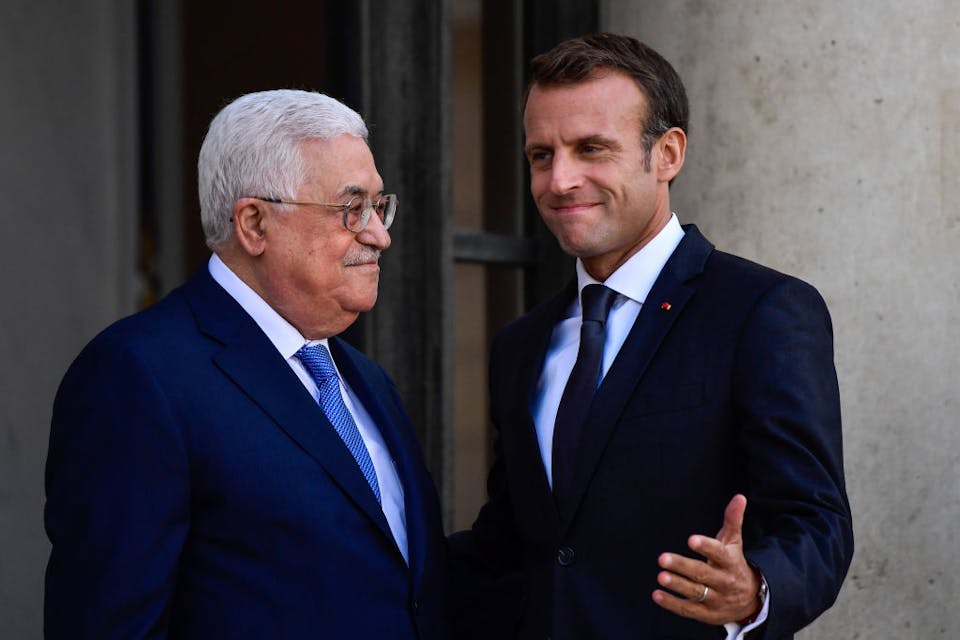
August 14, 2025
The Twisted Logic Behind Recognition of Palestinian Statehood
France, Britain, and Canada pave roads to nowhere.
In an unusual confluence of events, recent days have witnessed a flurry of diplomatic activity on the Israel-Palestinian conflict unseen in many years. This included an outcry of anguish and protest both at home and abroad at Israel’s handling of the humanitarian crisis in Gaza, the convening in New York of an international conference under Saudi and French chairmanship designed to resuscitate the moribund “two-state solution,” and the announcement by three close American allies—France, Britain, and Canada—of their intention to extend full diplomatic recognition to the “state of Palestine” at the annual meeting of the United Nations General Assembly next month. These were recently joined by Australia, and New Zealand is reportedly considering a similar move.
Any real connection among these events is hard to decipher. A two-state solution may offer a theoretical, long-term answer to the core dispute between Israelis and Palestinians, but rallying to its defense today will do nothing to address the food-delivery challenge in Gaza, let alone bring that gruesome war to an end. And recognition of Palestinian statehood may address some domestic political needs in Europe and Canada but it will do nothing to assuage the concerns of the constituency that matters most—Israel’s voting public—which fears the dangers to its safety that might accompany Palestinian statehood, rejects the idea by a large majority, and has elected successive governments that reflect that view.
With Hamas responding to the upsurge in global condemnation of Israel by feeling confident enough to release images of an emaciated hostage compelled to dig his own grave, it is fair to say that both the end of the Gaza War and the achievement of a two-state solution are further from realization today than before these recent events. To the extent these diplomatic initiatives had any impact, the worsening on both the humanitarian and peacemaking fronts is largely because of—not despite—this flurry of largely performative activity.